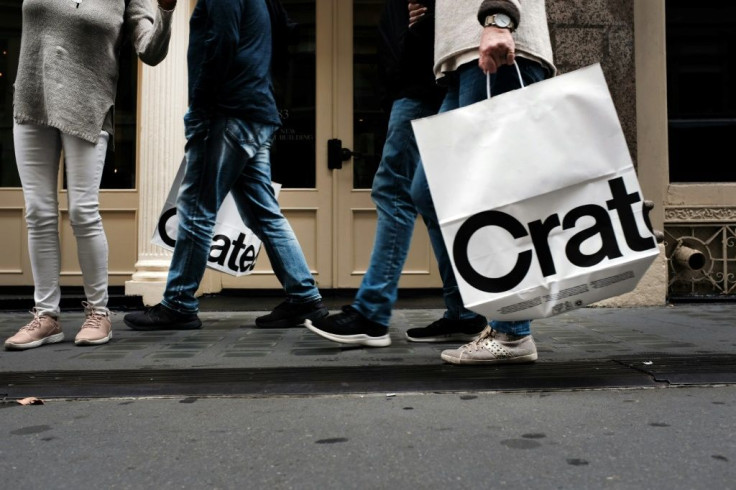US Consumer Confidence Slips Again In October: Survey

American consumers were less optimistic about the US economy in the near term in October as confidence slipped for the third consecutive month, according to a survey published Tuesday.
However, despite the ongoing trade conflict with China, the key confidence measure remains at a fairly high level and remains healthy going into the year-end shopping season, according to the Conference Board.
"Consumer confidence was relatively flat in October, following a decrease in September," said Lynn Franco, the group's head of economic indicators, said in a statement.
"However, confidence levels remain high and there are no indications that consumers will curtail their holiday spending."
The consumer confidence index dipped to 125.9 in October from 126.3 in September, according to the survey. That reflected a drop in expectations for the coming six months, and confounded analysts who had expected an increase.
US President Donald Trump cheered the numbers despite the decline.
"Consumer Confidence number very good. Housing sales in September up nicely. Economy Rocks!," Trump tweeted, also referring to an increase in pending home sales -- those under contract.
A slightly bigger share of respondents expect to see fewer jobs available in the next six months, according to the Conference Board survey.
But more respondents were upbeat about the present situation and expected business conditions to improve in coming months.
"We expect slowing payroll growth gradually to depress consumers' sentiment through the late fall and winter but it's hard to expect it to plunge as long as the stock market is resilient and gas prices are low," Ian Shepherdson of Pantheon Macroeconomics said in a client note.
The cutoff date for the Conference Board survey was October 18 -- a week after Trump announced a "very substantial phase one" deal with China to resolve some of the trade issues that have led to steep tariffs on hundreds of billions of dollars in trade between the economic powers.
That in turn has boosted stock prices to record levels in some cases.
The grinding trade conflict has undermined business confidence, crimped investment and caused consumers to worry more as well, which lead to a sharp drop in consumer sentiment in September.
A sustained loss of confidence could erode consumer spending, which has been a primary engine of the US economy.
Shepherdson noted a "sudden plunge" in the index measuring plans to buy a new vehicle, dropping to the lowest point in more than six years, which he called "an ominous development" though too early to call a trend.
© Copyright AFP {{Year}}. All rights reserved.





















